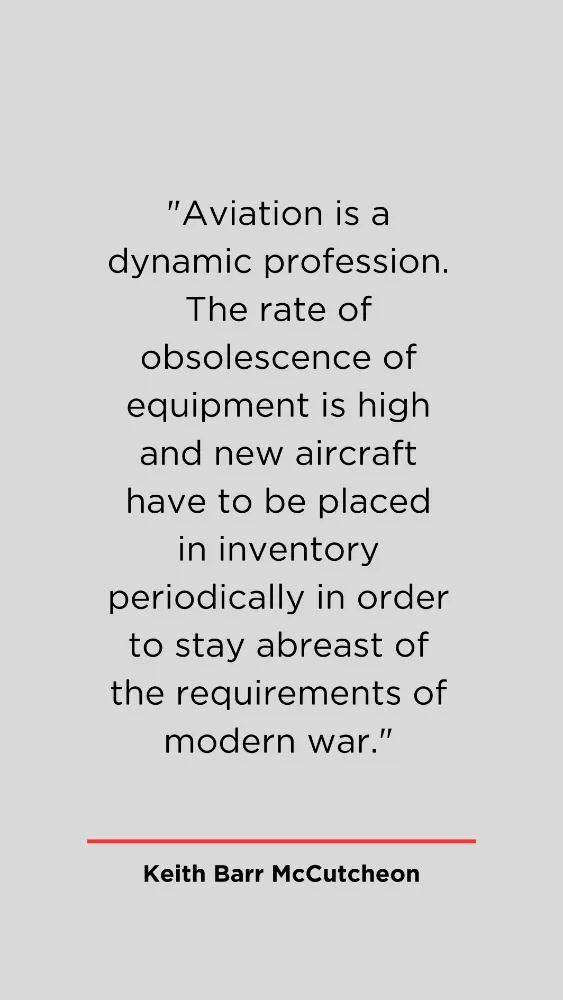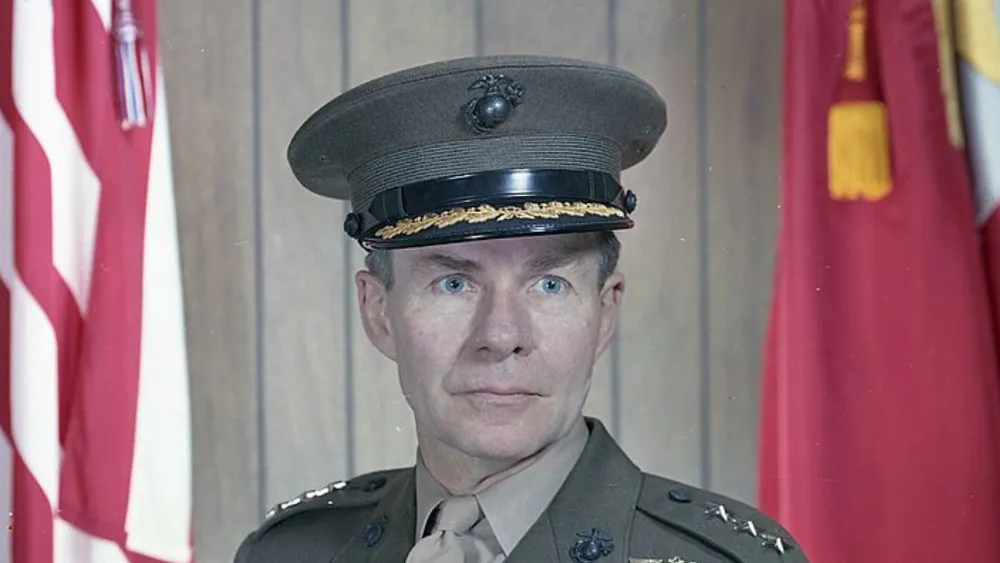Keith Barr McCutcheon was a top-notch general and pilot in the Marine Corps. He bravely fought in World War II, the Korean War, and the Vietnam War. For his exceptional service, he earned the Distinguished Flying Cross and ten Air Medals, showcasing his outstanding courage and dedication.
Commission in the United States Marine Corps
Keith McCutcheon, from East Liverpool, Ohio, was born on August 10, 1915. A commitment to education marked his early years, as he successfully graduated from East Liverpool High School, setting the stage for his future accomplishments. Motivated to better understand the world around him, he attended the prestigious Carnegie Institute of Technology.
McCutcheon was a remarkable man, and his commitment to his nation was clear. Because of his exceptional performance in the institute’s Reserve Officers’ Training Corps (ROTC) program, he was an honor graduate.
His resolve to serve in the military never wavered, and he decided to resign from his U.S. Army Reserve commission to begin a career as a second lieutenant in the United States Marine Corps.
On July 1, 1937, he formally accepted this esteemed position. This marked the beginning of his remarkable journey toward becoming a revered four-star general and aviator whose legacy endures as an inspiration to many.
Keith Barr McCutcheon: Distinguished Military Leadership
McCutcheon, as an aviator in the Marine Observation Squadron, skillfully ensured the success of critical wartime missions. Moreover, he gathered and relayed vital information in reconnaissance and observation tasks.
His experiences during these assignments cultivated his skills and judgment. Soon, it became a cornerstone of his military career.
McCutcheon’s pursuit of advanced education in aeronautical engineering not only showcased his intellectual prowess. It also underscored his determination to make significant contributions to the field of aviation.
Armed with a master’s degree earned in 1944, he was well-prepared for a career characterized by innovation. He showcased outstanding leadership, not only within aviation but also as a stalwart figure in the U.S. Marine Corps. His dedication to personal and professional growth was evident in his commitment to excellence.
Instructional Role at Marine Corps Schools
In September 1944, holding the rank of lieutenant colonel, he traveled to the Pacific theater. McCutcheon assumed the operations officer role within Marine Aircraft Group 24. He also served at key locations like Bougainville, Luzon, and Mindanao in the Philippine Islands.
His duty extended to operations officer positions within the Marine Aircraft Groups, first in Dagupan on Luzon and later in Zamboanga on Mindanao. During the period spanning from November 1, 1944, to May 26, 1945, he earned a remarkable list of honors. He also earned an impressive tally of six Air Medals, which are for his exceptional contributions to the Solomons, New Guinea, and the Philippine Islands.
In November 1945, McCutcheon returned to the United States. He took up an instructional role within the Aviation Section of the Marine Corps Schools in Quantico. Afterwards, his service from October 1946 until December 1949 led him to the Bureau of Aeronautics within the Navy Department in Washington, D.C.
In this role, he stationed himself in the Guided Missiles Division, named the Pilotless Aircraft Division, within the Design and Engineering Group.
Keith Barr McCutcheon: Transformative Leadership at HMX-One
In January 1950, McCutcheon underwent a transfer to Norfolk, marking a new phase in his illustrious career. There, he immersed himself in the challenging curriculum at the Armed Forces Staff College. He dedicated his time and expertise to the program until his successful completion in June 1950.
Following this accomplishment, he received orders to return to Quantico, this time as the commanding officer of Marine Helicopter Squadron One (HMX-One). This is the sole helicopter squadron within the Marine Corps during that era.
Over the following 18 months, HMX-One, under McCutcheon’s leadership. He played a role in expanding and advancing the Marine Corps Helicopter program. His commitment and visionary approach contributed to the growth and development of this critical military aspect.
Recognizing his exceptional leadership and dedication, he received a well-deserved promotion to colonel in June 1951. This promotion further solidified his standing as a figure within the United States Marine Corps.
European Command Assignments and Leadership Roles
In December 1951, McCutcheon took the helm of Marine Helicopter Transport Squadron 161 during the Korean War. His exceptional leadership earned him a second Legion of Merit with Combat “V,”. Thus, it recognized his remarkable contributions in a combat environment.
Additionally, his dedication as an aviator earned him his seventh through tenth Air Medals. This achievement underscored his exceptional service in the skies.
Subsequently, in October 1952, McCutcheon received orders to join the Headquarters of the United States European Command in Frankfurt, West Germany.
During his tenure, he held several vital positions, including operations officer and assistant chief. Later, he became the chief of the Operations Branch within the J-3 Division. Therefore, it made significant contributions until May 1954.

Farewell to General Keith Barr McCutcheon
Regretfully, his deteriorating health prevented him from taking on the responsibilities of this prestigious role. Congress passed special legislation to guarantee that he would be placed on the retired list with the rank of general.
Recognizing his exceptional contributions and the impact he had left on the Marine Corps. This was done to honor his lifetime of service and dedication.
On July 1, 1971, McCutcheon’s promotion to general was officially realized, and he was duly placed on the retired list. Tragically, on July 13, 1971, he suffered cancer. His passing marked the end of a remarkable military career characterized by courage, leadership, and commitment to his country.
Keith Barr McCutcheon found his final resting place in Arlington National Cemetery, where his memory is a testament to his enduring legacy of service and sacrifice.




